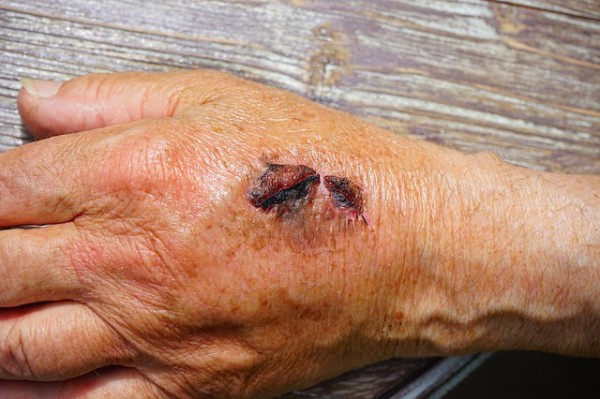Medical implants are a major component of modern medicine ranging from pacemakers and prosthetics to transplants. However, the presence of medical implants can trigger the body’s immune system to isolate the foreign substance from the rest of the body. When small particles penetrate the skin, the body’s immune cells are able to remove the foreign substances through a process called phagocytosis. However, in the case of medical implants, the cells of the body cannot remove large foreign materials. The immune response persists until scar tissue surrounds the implant and isolates it from the rest of the body.
The process of developing scar tissue, or fibrous tissue, is called fibrosis. This reaction is a natural immune response that is necessary for repairing skin and tissue. However, this tissue disrupts the function of some implantable devices, such as pacemakers, that require interaction with surrounding tissue to function properly. While immune-suppressing drugs may be used to prevent these outcomes, these drugs also prevent the immune system from functioning properly, and may cause unwelcome side effects in the patient.
Daniel Anderson, a professor at MIT, and other scientists have been working on an implantable pancreas-like device, which would treat diabetes patients. In an effort to achieve biocompatibility, their device uses materials found in algae, which is less harmful than metals. However, scar tissue was still induced after implantation. Thus, the group became interested in learning more about fibrosis. Along with other scientists from MIT and Boston’s Children Hospital, the group began studying the biology of fibrosis and ways they could improve long-term implantation efficacy.
Image Source: Chris Ryan
The research group identified a molecule, CSF1, responsible for the signaling of fibrosis. The study found that blocking CSF1 in mice stopped fibrosis from occurring. Additionally, blocking the CSF1 molecule did not compromise other important immune responses from functioning, unlike other immunosuppressants. This finding was verified by using various materials including ceramic and polystyrene devices.
With this study, the possibilities of delivering the blocking agent along with medical devices would prevent the body from rejecting the implant without suppressing the immune system entirely. Researchers hope that this study can be generalized to more materials, allowing scientists to use a larger range of biomaterials for implantable devices.
Feature Image Source: Hans










